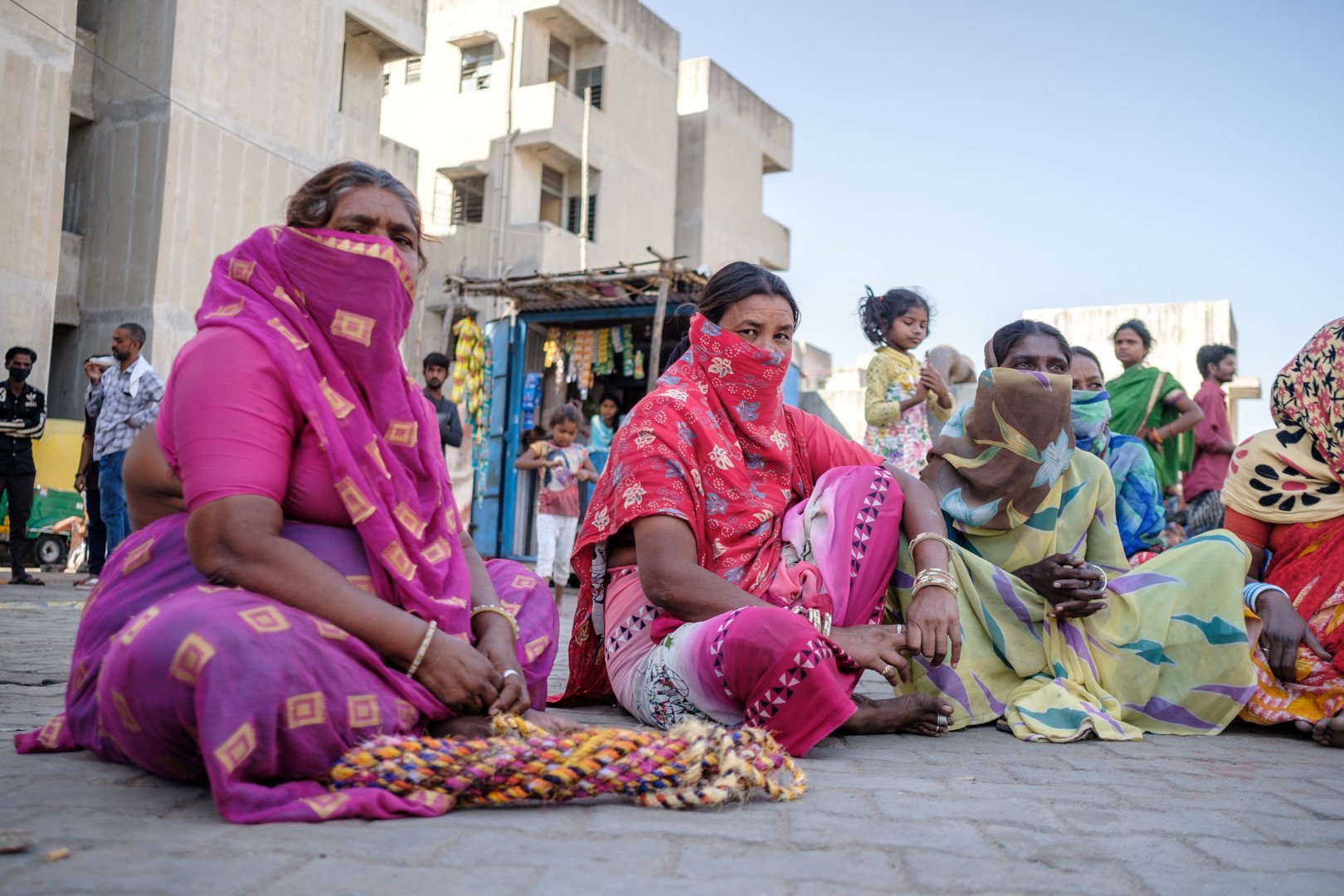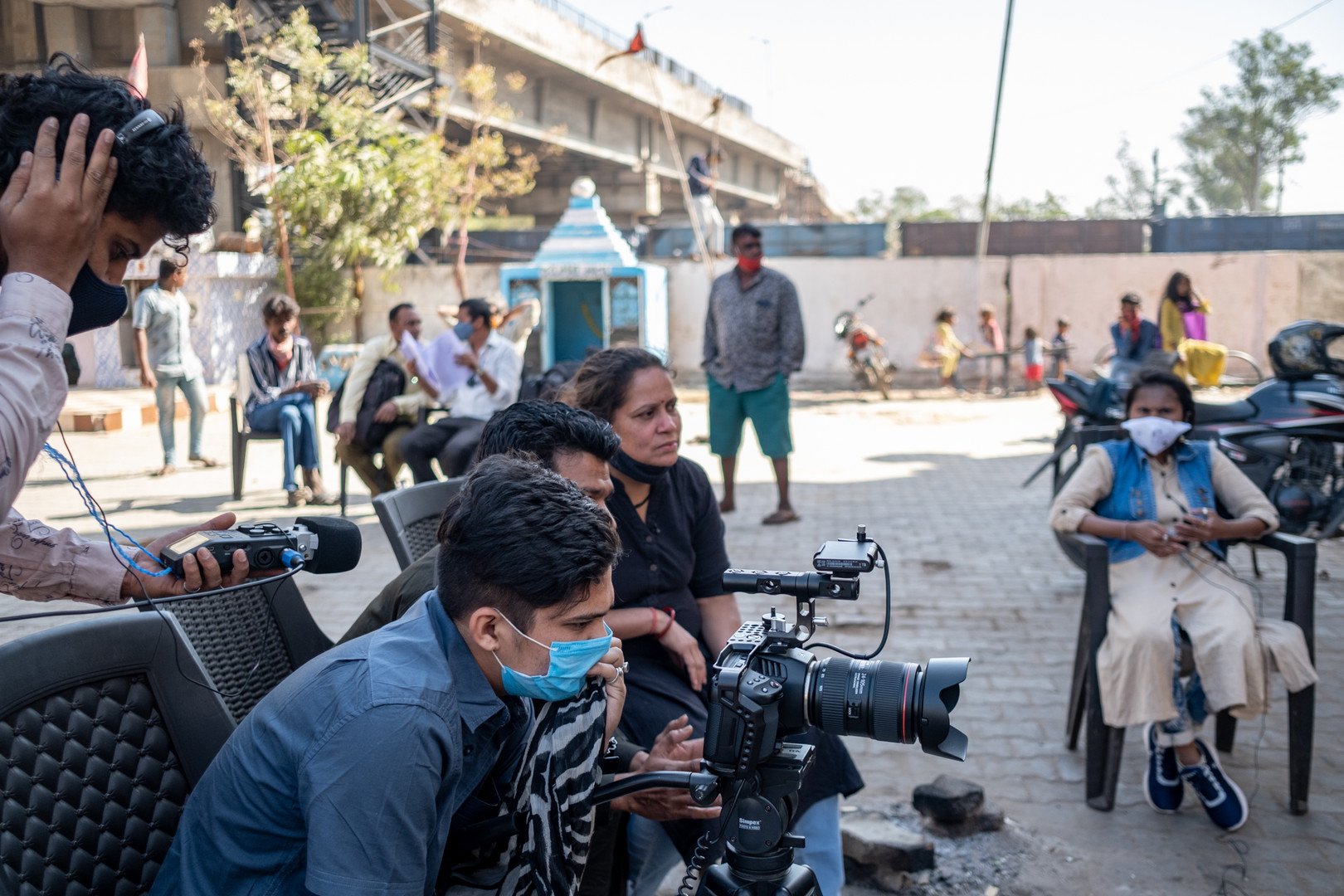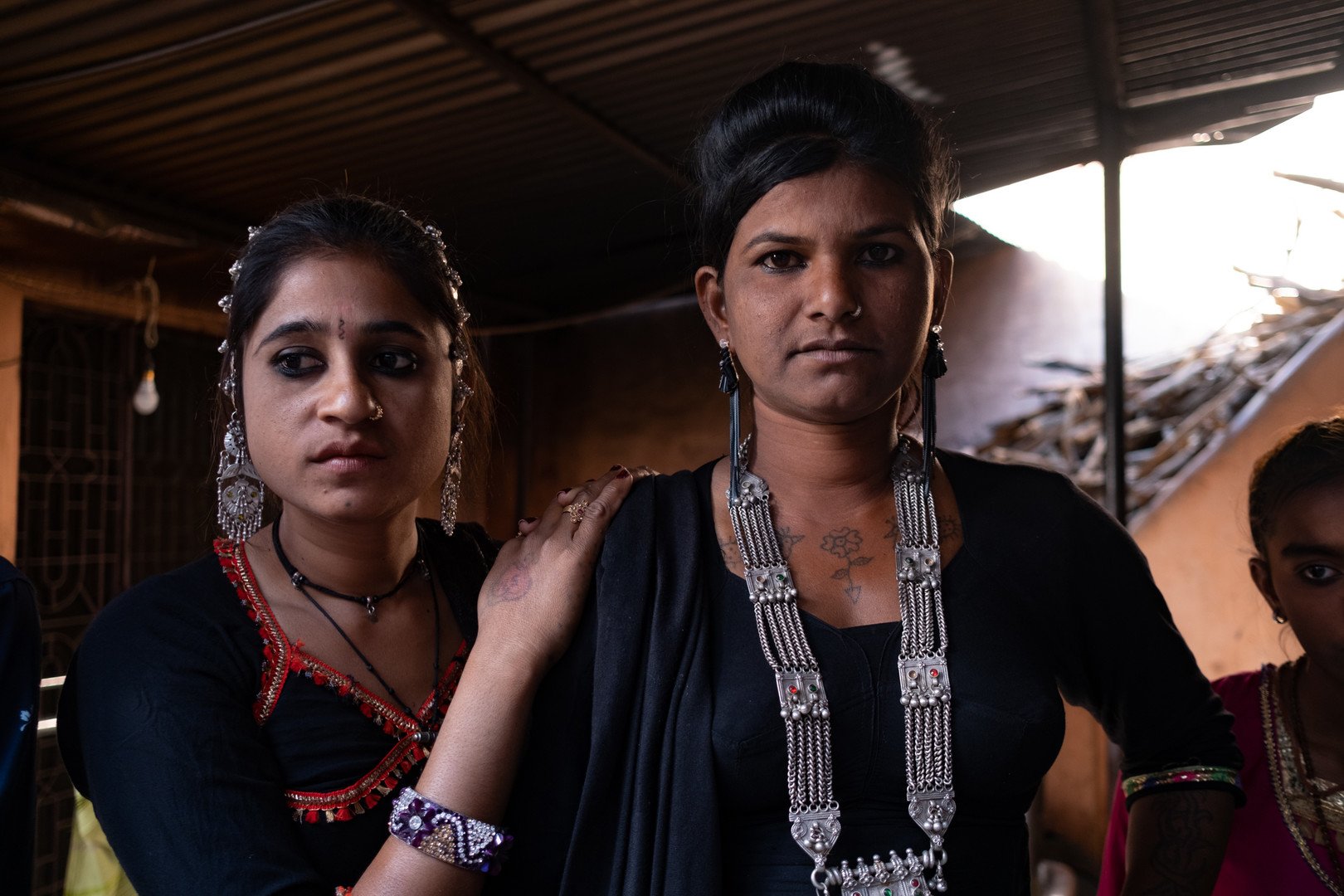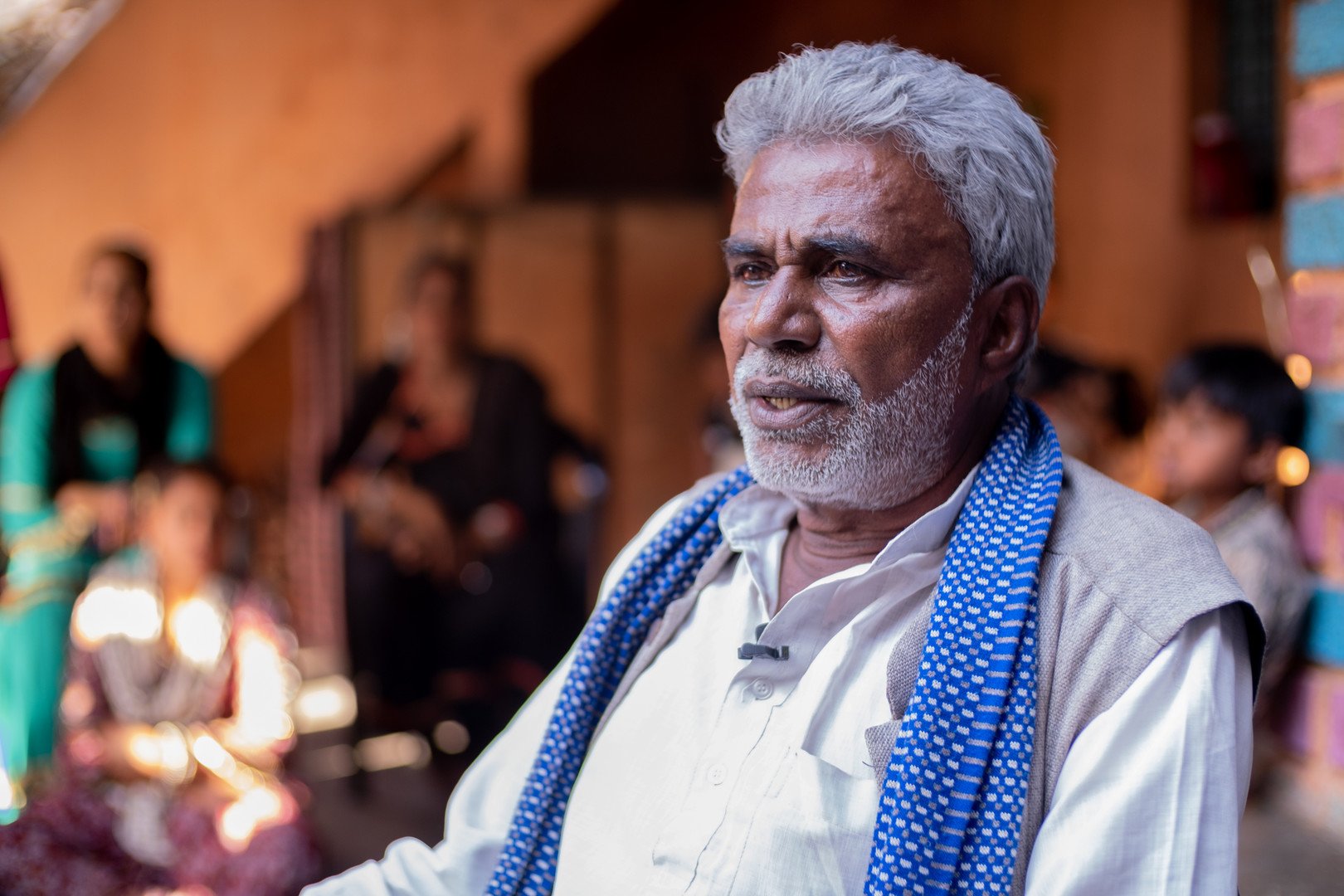Telling our COVID stories
A courageous and talented group of artists from India’s so-called ‘criminal tribes’ stepped out during the COVID-19 pandemic to document the stories of their communities, which have remained invisible from national and international reporting. They produced a series of video-podcasts in indigenous languages spreading information about health and rights, documenting their experiences, and providing entertainment through songs, dance and theatre in a time of crisis. This film will take you through the histories and arts of people living at the perilous margins of Indian society, and explore how they are dealing with the impact of the pandemic.
Director Dakxinkumar Bajrange
Co-director Alice Tilche
Producer Bhasha Research and Publication Centre
Background Music Anish Chhara
Lyrics Anish Chhara
Sound Design Dakxinkumar Bajrange
Sound Recordists Chetna Chhara, Ruchika Chhara, Siddharth Chhara
Subtitles Keyur Chhara
Project Consultant Akshay Khanna
Photographer Ankita Jain
Funded School of Museum Studies, University of Leicester, Global Challenges Research Fund
Screenings and Awards
Award Winner, Berlin Indie Film Festival (Germany)
Award Winner, Quetzalcoatl Indigenous International Film Festival (Guatemala)
Award Winner, 7th Art Independent International Film Festival (India)
Screening, Being Human Festival 2021 (United Kingdom)
Official selection, Essex DocFest (United Kingdom)




Dakxinkumar Bajrange is an award-winning filmmaker, playwright, director and activist from the Chhara De-notified Tribe of Ahmedabad, in western India. He received the Ford Foundation International Fellowship (2010-11) to study Theatre and Global Development at the University of Leeds, UK. His book ‘Budhan Bolta Hai’ (Budhan Speaks) was awarded the first prize for "Mahatma Gandhi Best Creative Writing on Human rights" by National Human Rights Commission (NHRC) in 2010-11. He is a recipient of the Rajiv Gandhi Arts Fellowship (2004-05) and Bhasha Fellowship (2002-03) to study art forms of nomadic and de-notified communities in Gujarat. Currently, he works as the Artistic Director at Budhan Theatre, a community theatre group of the Chhara de-notified tribe of Gujarat. He is also the founding director of Nomad Movies Pvt. Ltd, which provides production and post-production facilities to make fiction and non-fiction films.
As a filmmaker, Dakxin has directed 70 fiction and non-fiction films on various development and political issues in India. His films are widely screened in film festivals and universities in India and abroad. He is the winner of the South Asia documentary film award Jeevika (2005) for his film ‘Fight for Survival’. His film on De-notified Tribes of India entitled ‘Birth 1871’, was screened at 11 universities in the USA and Canada and in 5 universities across the UK. From 2008 to 2010, he worked as an associate director with renowned documentary filmmaker Rakesh Sharma on three films around the political issues of Gujarat - Chet’ta Rejo, Khedu Mora Re, Kesariyo Kono. As a theatre director, he has also written and directed 11 plays and supervised 46 theatre productions of Budhan Theatre and performed in more than 700 shows in different parts of India. He has conducted a number of theatre workshops for community development in marginalised communities, schools, colleges and institutions, trained more than 300 actors and founded a number of theatre groups. He coordinated and organised Gujarat’s biggest community theatre festival called Ahmedabad Theatre Festival (ATF) in 2012.
Dakxin is the author of two books, ‘Budhan Bolta Hai’ (2010) published in Hindi and the play ‘Budhan’, published in Hindi and English by Bhasha Research and Publication Centre. His academic publications have appeared in Antipode: A Journal of Radical Geography, Liffey Press Ireland, Seminar India, Bhasha Research and Publication Centre, Penguin India, Malayalam Manorama, Budhan Newsletter and Padmagandha Publication. He has presented papers in many reputed national and international conferences in India, USA, UK, Canada and has given talks on theatre and film at the United Nations in 2007.
Director
Alice Tilche is a lecturer in Art, Anthropology and Museum Studies at the University of Leicester, UK. Her research at the intersection of art and activism employs visual, collaborative and arts-based methods to research social transformations. Recent research includes work on the cultural politics of indigeneity, migration, nationalism and most recently Covid-19. Her new book Adivasi Art and Activism: curation in a nationalist age was published with Washington University Press in 2020. Alice has collaborated with Dakxin Bajrange on a series of film projects including the films Sundarana (2011) and Broken Gods (2019), which have been selected for a number of international film festivals. Alice and Dakxin are currently collaborating on a series of visual art and research projects looking at the experiences of the pandemic among some of India's most marginal indigenous communities. Alice’s work has been funded by the Wenner-Gren Foundation, the British Academy, the Leverhulme Trust and the Arts and Humanities Research Council UK among others.
Co-director






